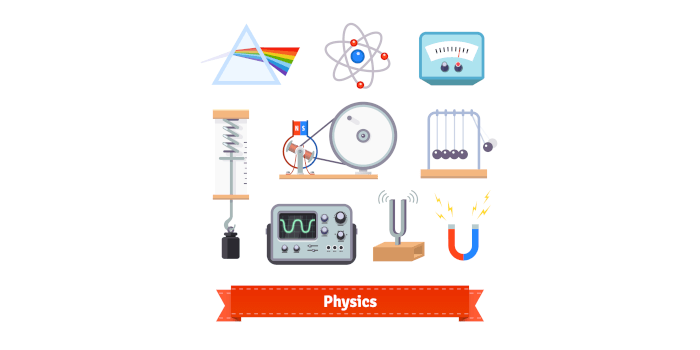ROOT is an object-oriented program and library developed by CERN, aimed at solving the data analysis challenges of high-energy physics.
It was originally designed for particle physics data analysis and contains several features specific to this field, but it is also used in other applications such as astronomy and data mining.
ROOT is currently mainly used in data analysis and data acquisition in high energy physics experiments — most current experimental plots and results are obtained using ROOT.
Features include:
- Provides packages for:
- Histogramming and graphing to visualize and analyze distributions and functions.
- Graphical capabilities of ROOT range from 2D objects (lines, polygons, arrows) to various plots, histograms, and 3D graphical objects
- Curve fitting (regression analysis) and minimization of functionals.
- Statistics tools used for data analysis.
- Matrix algebra.
- Four-vector computations, as used in high energy physics.
- Standard mathematical functions.
- Multivariate data analysis, e.g. using neural networks.
- Image manipulation, used e.g. to analyze astronomical pictures.
- Access to distributed data (in the context of the Grid).
- Distributed computing, to parallelize data analyses.
- Persistence and serialization of objects, which can cope with changes in class definitions of persistent data.
- Access to databases.
- 3D visualizations (geometry).
- Creating files in various graphics formats, like PostScript, JPEG, SVG.
- Interfacing Python and Ruby code in both directions.
- Interfacing Monte Carlo event generators.
- C++ interpreter called cling built in. It’s used for the prompt, both C++ and Python. It also serves as a source of information to store C++ objects, and provides the back-end for ROOT’s signal/slot and plug-in mechanisms.
Website: root.cern.ch
Support:
Developer: ROOT team
License: GNU Lesser General Public License
The software is mainly written in C++ but integrated with other languages such as Python and R. Learn C++ with our recommended free books and free tutorials.
Return to Scientific | Return to Plotting Tools | Return to Data Mining | Return to Physics Tools | Return to Statistical Analysis
| Popular series | |
|---|---|
| The largest compilation of the best free and open source software in the universe. Each article is supplied with a legendary ratings chart helping you to make informed decisions. | |
| Hundreds of in-depth reviews offering our unbiased and expert opinion on software. We offer helpful and impartial information. | |
| The Big List of Active Linux Distros is a large compilation of actively developed Linux distributions. | |
| Replace proprietary software with open source alternatives: Google, Microsoft, Apple, Adobe, IBM, Autodesk, Oracle, Atlassian, Corel, Cisco, Intuit, SAS, Progress, Salesforce, and Citrix | |
| Awesome Free Linux Games Tools showcases a series of tools that making gaming on Linux a more pleasurable experience. This is a new series. | |
| Machine Learning explores practical applications of machine learning and deep learning from a Linux perspective. We've written reviews of more than 40 self-hosted apps. All are free and open source. | |
| New to Linux? Read our Linux for Starters series. We start right at the basics and teach you everything you need to know to get started with Linux. | |
| Alternatives to popular CLI tools showcases essential tools that are modern replacements for core Linux utilities. | |
| Essential Linux system tools focuses on small, indispensable utilities, useful for system administrators as well as regular users. | |
| Linux utilities to maximise your productivity. Small, indispensable tools, useful for anyone running a Linux machine. | |
| Surveys popular streaming services from a Linux perspective: Amazon Music Unlimited, Myuzi, Spotify, Deezer, Tidal. | |
| Saving Money with Linux looks at how you can reduce your energy bills running Linux. | |
| Home computers became commonplace in the 1980s. Emulate home computers including the Commodore 64, Amiga, Atari ST, ZX81, Amstrad CPC, and ZX Spectrum. | |
| Now and Then examines how promising open source software fared over the years. It can be a bumpy ride. | |
| Linux at Home looks at a range of home activities where Linux can play its part, making the most of our time at home, keeping active and engaged. | |
| Linux Candy reveals the lighter side of Linux. Have some fun and escape from the daily drudgery. | |
| Getting Started with Docker helps you master Docker, a set of platform as a service products that delivers software in packages called containers. | |
| Best Free Android Apps. We showcase free Android apps that are definitely worth downloading. There's a strict eligibility criteria for inclusion in this series. | |
| These best free books accelerate your learning of every programming language. Learn a new language today! | |
| These free tutorials offer the perfect tonic to our free programming books series. | |
| Linux Around The World showcases usergroups that are relevant to Linux enthusiasts. Great ways to meet up with fellow enthusiasts. | |
| Stars and Stripes is an occasional series looking at the impact of Linux in the USA. | |
